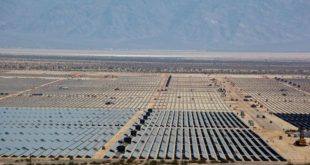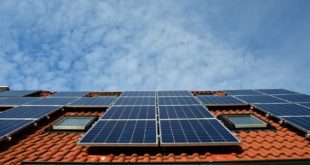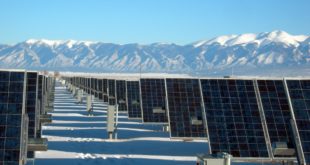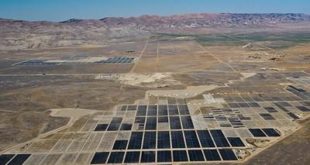Last week, the U.S. Commerce Department imposed tariffs on $3 billion a year worth of Chinese solar panel imports. Non-Chinese solar panel manufacturers contend that China is able to “dump” cheap panels on the global market thanks to lavish Chinese government subsidies. This imbalance compounds the unfair advantage Chinese manufacturers already enjoy thanks to its huge low-wage workforce.
It’s a complicated, wonky issue even for solar geeks like me, and there are compelling policy justifications for and against the tariffs. Below is a pros and cons cheat sheet so you can be the big expert at your next dinner party, but let me first offer this key context, which the technocrats often lose sight of: In any sane debate concerning energy, climate change must be the trump card, and China is the mega-nation that will make or break global efforts to cool the planet.
<–break->
Solar Tariffs: The Pros
- The Chinese solar industry is undermining US solar manufacturing by flooding the market with cheap panels, and tariffs could help level the playing field.
- Instead of dumping panels on the global market, China can and should install them domestically.
- Cheap PV panels stifle innovations like thin film solar.
Solar Tariffs: The Cons
- Most solar industry job growth in the US is not in manufacturing, but in finance, engineering, installation, sales, marketing and customer service.
- Cheap solar panels make it possible for the 99% in the US and Europe to go solar. In effect, cheap panels are making solar competitive with coal.
- Cheap solar panels make it attractive for businesses and schools to go solar.
- If the Chinese solar industry falters, US installers will be dealt a major blow.
- Tariffs will dampen China’s solar industry and obstruct China’s goal of installing 15 GW by 2015 (50% more solar than the US is predicted to have). Even if China utilizes the current surplus for its own electricity needs, the long term prospects for manufacturers will be clouded.
- Global panel manufacturers increasingly seek to locate factories close to booming solar markets so as to minimize shipping costs. So we can expect a growing manufacturing base in the U.S. even without tariffs.
- If the Chinese government and banks want to subsidize their solar industry, we should rejoice. As one Beijing-based renewable energy consultant put it, “If you buy a solar panel from China, China is paying for part of it. If I were the U.S., I would let Americans milk it.”
- If the US wants to level the playing field with China, it can redistribute fossil fuel subsidies to the solar industry.
I really did try to give the pro-tariff point of view an equal number of bullet points but, at the end of the day, we’re playing a win-win, lose-lose game with China — either both nations nurture their solar industries and stave off climate catastrophe or we keep squabbling our way to a slow boil.
Follow Erica Etelson @iluvsolar
 Alternative Energy HQ solar power for homes, wind energy, and bio fuel issues
Alternative Energy HQ solar power for homes, wind energy, and bio fuel issues







One comment
Pingback: cheap solar trade in value – care what I think